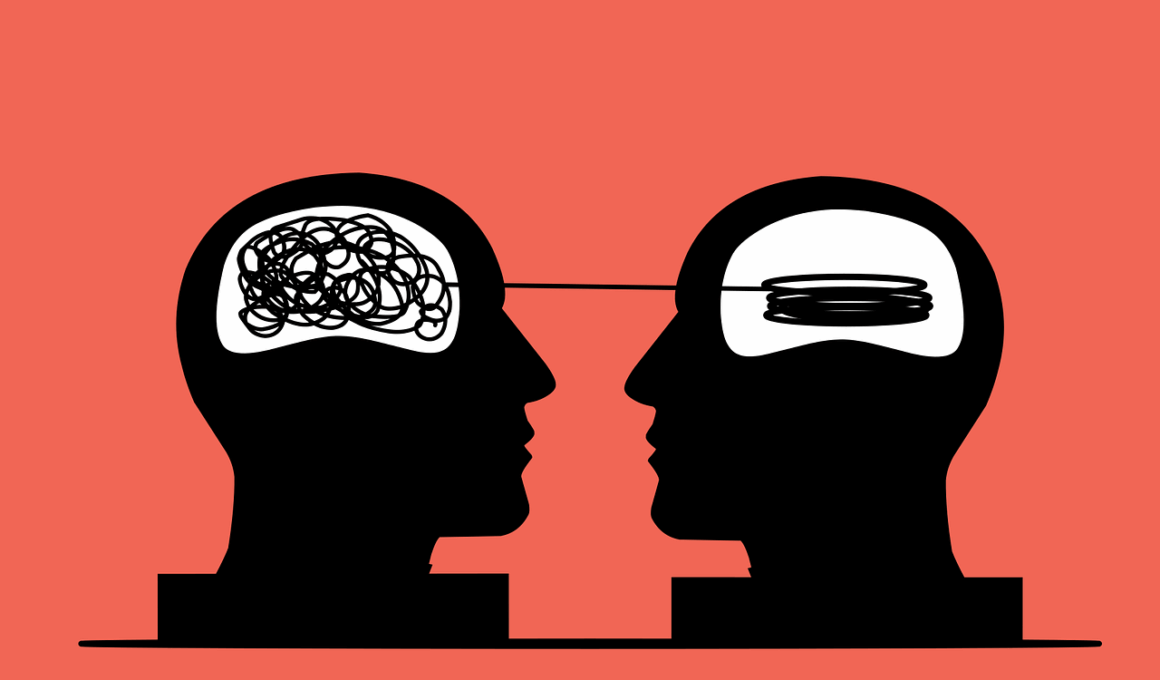Understanding the Link Between Sleep Quality and Stress Levels
The relationship between sleep quality and mental health is profound, as poor sleep can significantly increase stress levels. People who experience high amounts of stress often find that their ability to fall asleep or stay asleep is negatively affected. This interplay means that sleep is crucial for the regulation of stress responses. Stress can lead to sleep disturbances, creating a vicious cycle where insufficient rest exacerbates stress. One of the physiological mechanisms behind this connection is cortisol, a hormone linked to stress that can disrupt sleep patterns. Increased cortisol levels can result in more nighttime awakenings and reduced overall sleep quality. Therefore, addressing sleep issues is essential for managing stress effectively. In turn, improving sleep can enhance mental resilience against stressors. Practicing good sleep hygiene, including maintaining a regular sleep schedule and creating a relaxing bedtime routine, can support better sleep quality. Activities such as meditation and light exercise can also promote relaxation. Addressing the quality and duration of sleep is a serious consideration for anyone looking to manage their mental health in the face of daily stressors.
Research confirms that insufficient sleep correlates with heightened stress and anxiety. Individuals coping with mental health challenges often report a significant decrease in sleep quality. Notably, stress leads to ruminative thought patterns, hampering the ability to relax and sleep well. This issue can become a self-perpetuating cycle where stress affects sleep and poor sleep intensifies stress. Recognizing the signs of sleep deprivation is critical for addressing this issue effectively. Symptoms may include irritability, difficulties in concentrating, and heightened emotional responses. Additionally, lack of sleep can suppress immune function and worsen overall well-being. Implementing coping strategies to manage stress can also enhance sleep quality. Techniques such as cognitive-behavioral therapy and mindfulness practices have proven effective. Engaging in such methods can lead to a significant improvement in both stress management and sleep quality. Moreover, dietary choices can affect sleep patterns. Consuming a balanced diet rich in whole foods can positively influence sleep quality, reducing levels of anxiety and stress. It’s essential for individuals to take both stress and sleep seriously for a healthier lifestyle.
Sleep Hygiene Practices to Combat Stress
Establishing a consistent sleep routine is crucial for maintaining good sleep hygiene, thereby alleviating stress. Keeping a consistent bedtime can help regulate your body’s internal clock, making it easier to wind down. Limit exposure to screens at least an hour before bed, as blue light disrupts melatonin production. Creating a peaceful and comfortable sleep environment can also help ease stress levels. Ensure that your bedroom is dark, quiet, and at a comfortable temperature. Using blackout curtains, earplugs, or white noise machines can enhance the quality of sleep. Additionally, engaging in a calming pre-sleep activity, such as reading or gentle yoga, can promote relaxation and reduce stress. Avoiding heavy meals, caffeine, and alcohol close to bedtime will also support better sleep. Regular physical activity can significantly improve sleep quality and decrease stress. Exercise reduces cortisol levels and promotes the release of endorphins, helping to manage stress. Balancing physical health with adequate sleep practices can lead to a powerful synergy for overcoming daily stressors and enhancing mental well-being.
Understanding the stress-sleep connection enables individuals to make effective lifestyle adjustments. One critical aspect of managing stress involves learning to recognize stress triggers. This awareness helps in developing strategies tailored to personal needs, which can improve both emotional and mental health. Keeping a journal to document stressors and emotions can provide insight, fostering reflection and personal growth. Furthermore, intentional breathing exercises and progressive muscle relaxation can significantly enhance the ability to unwind before bed. These practices not only help in combating immediate stress but also aid in establishing a healthier mindset over time. Seeking support from mental health professionals can also be beneficial, especially if stress significantly impacts sleep. Therapists can provide tools and support for managing both stress and sleep issues. In addition, establishing a support network of friends and family can enhance resilience against stress. Sharing experiences and feelings can alleviate the burden of stress. Taking small, actionable steps to improve sleep hygiene can lead to more restful nights, enabling better stress management during the day. The journey to better sleep quality and reduced stress is multifaceted, combining awareness, strategies, and support.
The Role of Nutrition in Sleep and Stress Management
Nutrition plays a significant role in regulating both sleep and stress. Consuming foods rich in magnesium and omega-3 fatty acids can promote better sleep quality. Magnesium helps relax muscles and reduce cortisol levels, making it easier to manage stress and sleep soundly. On the other hand, omega-3s have been shown to lower anxiety and improve mood. Foods that are beneficial for sleep include bananas, almonds, and fatty fish, as they contain compounds that promote melatonin production. In contrast, high-sugar and high-fat diets may lead to increased anxiety levels and poor sleep. Staying hydrated is equally important, as dehydration can impact mood and energy levels. Caffeine should also be consumed mindfully, especially in the afternoon and evening when it can interfere with sleep. Herbal teas, such as chamomile and valerian root, can be excellent alternatives for promoting relaxation. Establishing a balanced diet can have lasting effects on both mental well-being and sleep quality. Adopting mindful eating habits alongside these nutritional choices can support overall health, helping to create a buffer against stress.
Stress management is an ongoing process, and improving sleep is a critical factor in this equation. By cultivating healthy habits, individuals can take proactive measures to safeguard both their sleep and mental health. Using techniques such as visualization and gratitude journaling can help focus the mind on positive outcomes while reducing stress. Sleep tracking applications enable users to monitor sleep patterns and gain awareness of their sleep quality. This can provide insights into how stressors affect sleep cycles, informing adjustments to routines. Understanding individual sleep needs is essential, as some people may require more sleep than others. Creating an individualized action plan for stress reduction can also promote better sleep quality over time. Interventions like time management and setting boundaries can significantly reduce overwhelming workloads causing stress. Practicing good sleep hygiene coupled with stress management strategies will provide a more holistic approach to improving mental health. Finally, fostering social connections can alleviate feelings of isolation caused by stress, reinforcing the importance of healthy relationships. These comprehensive strategies emphasize the dual importance of prioritizing sleep and managing stress.
Conclusion: Prioritizing Sleep for a Healthier Mind
Prioritizing sleep is foundational to enhancing mental health and effectively managing stress. The evidence linking sleep quality with stress responses reinforces the understanding of their intricate relationship. By being mindful of sleep habits and recognizing stress triggers, individuals can work towards fostering better mental resilience. Cultivating a routine rich with relaxation techniques, nutritional awareness, and consistent sleep hygiene practices is vital. Each action taken to improve sleep quality positively impacts overall well-being, creating a more vibrant, healthier life. The journey towards optimal sleep and mental health is ongoing, filled with opportunities for growth and improvement. It empowers individuals to embrace a balanced life, free from the burdens of poor sleep and overwhelming stress. Individuals are encouraged to take charge of their sleep journey and seek professional advice when necessary. Awareness, education, and intentional practices lead to a more relaxed state of mind, equipping individuals to handle life’s challenges effectively. Ultimately, sleep is not merely a time for rest; it is an essential element of mental health strategy, deserving of attention and care.
Assessing the sleep-stress dynamic can also lead to a deeper self-understanding, revealing patterns that may otherwise go unnoticed. People often overlook the cascading effect that stress can have on overall health. It’s vital to remember that managing stress effectively can lead to improvements in sleep, and conversely, better sleep can empower individuals to address stressors more effectively. Initiating change can seem daunting, but small, deliberate steps can yield significant results over time. Regular check-ins with oneself and adjustments based on progress can create a supportive environment for wellbeing. Embracing mindfulness can offer a sense of empowerment, equipping individuals with tools to navigate stress with clarity. Mindfulness practices, such as guided visualization, help create mental space necessary for restful sleep. Similarly, engaging in creative outlets can provide an emotional release, potentially easing stress. Keeping a balanced perspective is key, making room for patience and self-compassion throughout the journey. Building a strong foundation of consistent sleep can help fortify mental health against various challenges, forging deeper connections within oneself and with others.





